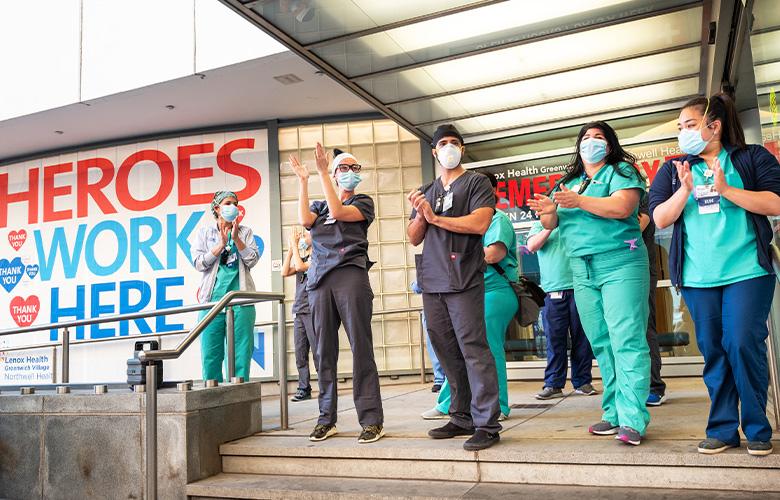
Coping with the stress of providing care during this pandemic can have sweeping impacts on the mental and emotional health of health care workers. Indeed, for many, the idea that they may need emotional support to cope with this stress may be foreign. While they may embody compassion, stamina, and strength, health care workers are not immune to feelings of anxiety, fear, and uncertainty. Therefore, health care leaders must ensure their staff know their options for seeking mental and emotional care. Specifically, they should:
- Educate staff on the signs and symptoms of emotional distress in themselves and in their colleagues that is more than can be managed alone
- Normalize help-seeking in response to stress and trauma
- Empower staff to take steps to ensure safety and well-being
- Make care options readily available and provide ongoing communication that encourages help-seeking
Employee Assistance Programs (EAPs): EAPs offer a range of services, including short-term behavioral health care supports, often offered at convenient times for employees who work varying shifts.
As employees may not know about EAP services or what to expect, employers can:
- Ensure that all employees are aware of EAP services
- Encourage employees to use the EAP resources
- Designate a staff member who is familiar with EAP services to answer employee questions
- Remind employees that the services are confidential
- Inform employees of other options should EAP services feel “a little too close to home”
Health Insurance Providers: Some health insurance providers have made it easier to obtain care in a variety of formats due to COVID-19. Individuals can often go online to their insurance provider’s website to find information on contacting providers, telehealth options, and referrals.
Crisis Services: For some health care providers, coping with heightened stress can suddenly become unmanageable. A crisis can happen at any time, so it is vital to provide health care workers with information on accessing crisis services. Options that are available 24/7/365 in the United States include:
National Suicide Prevention Lifeline:
- Phone: 1-800-273-TALK (8255)
- Online Chat: https://suicidepreventionlifeline.org/chat/
Disaster Distress Helpline:
- Phone: 1-800-985-5990
- Text: “TalkWithUs” to 66746
Crisis Text Line:
- Text “FRONTLINE” to 741741
- Website: https://www.crisistextline.org/
For more information, see Providing Care During COVID-19, a resource on the Zero Suicide website.
| Caitlin Peterson is senior project associate at EDC. She provides training and technical assistance to health and behavioral health care organizations seeking to provide improved suicide prevention practices to those in their care. |

Add new comment